Space
Sign up for our newsletter
We summarize the week's scientific breakthroughs every Thursday.
-
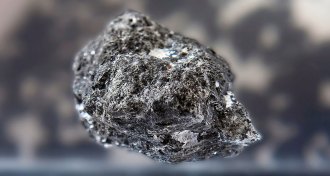 Astronomy
Astronomy50 years ago, a spacecraft discovered oxygen in moon rocks
In 1967, scientists dreamed of lunar processing plants to turn moon rocks into oxygen.
By Kyle Plantz -
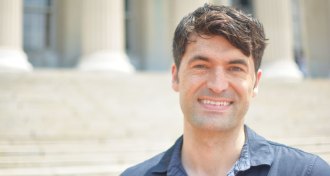 Astronomy
AstronomyDavid Kipping seeks new and unexpected worlds
Astronomer David Kipping became “the moon guy” by deciding no idea is too crazy.
-
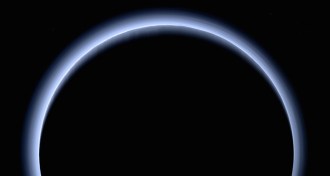 Astronomy
AstronomyWhy it’s good news that Pluto doesn’t have rings
The New Horizons team searched for rings around Pluto, and found nothing. That suggests the spacecraft’s next destination might be ring-free too.
-
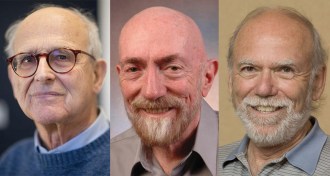 Physics
PhysicsTrio wins physics Nobel Prize for gravitational wave detection
Pioneers of LIGO collaboration win for finding spacetime ripples from two spiraling black holes.
By Emily Conover and Lisa Grossman -
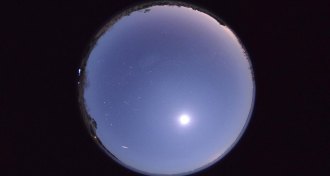 Astronomy
AstronomyHow a meteor shower helped solve the case of the vanishing comet
A missing comet has been linked to a long-lost meteor shower, helping astronomers recover both.
-
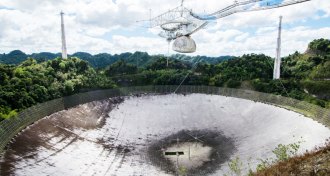 Astronomy
AstronomyNew questions about Arecibo’s future swirl in the wake of Hurricane Maria
The iconic Arecibo Observatory was damaged in Hurricane Maria, but not as much as originally thought. But its funding is still in doubt.
-
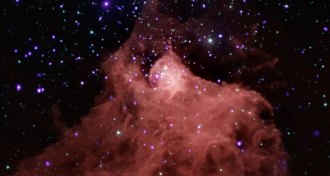 Astronomy
AstronomyIce in space might flow like honey and bubble like champagne
Zapping simulated space ice with imitation starlight makes the ice act more like a liquid than a solid, meaning similar ices in space might be good places for organic chemistry.
-
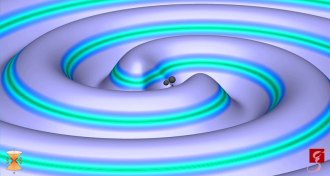 Physics
PhysicsTrio of detectors tracks gravitational waves to their home
LIGO and Virgo spot spacetime ripples in their first joint detection.
-
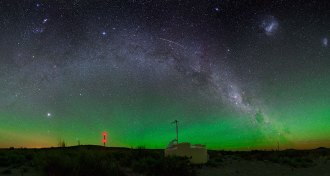 Astronomy
AstronomyUltrahigh energy cosmic rays come from outside the Milky Way
The biggest cosmic ray haul ever points toward other galaxies as the source of the rays, not our own.
-
 Astronomy
AstronomyReaders ponder mini-spacecraft and Canaanites’ genomes
Readers have questions about miniature spacecraft project and Canaanite genealogy.
-
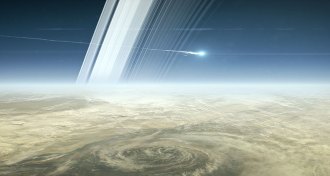 Astronomy
AstronomyR.I.P. Cassini
After 20 years, nearly 300 orbits and pioneering discoveries, the Cassini spacecraft plunges to its death in Saturn’s atmosphere — taking data until its very last breath.
-
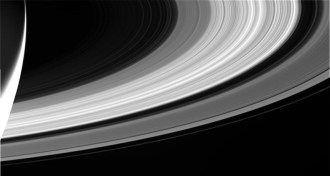 Astronomy
AstronomyThese are Cassini’s parting shots of the Saturn system
In its last hours before plunging into Saturn’s atmosphere, the Cassini spacecraft turned its cameras to some of the system’s well-known features.